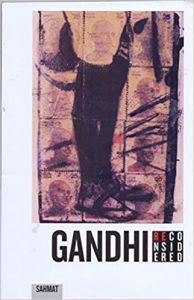Irfan Habib
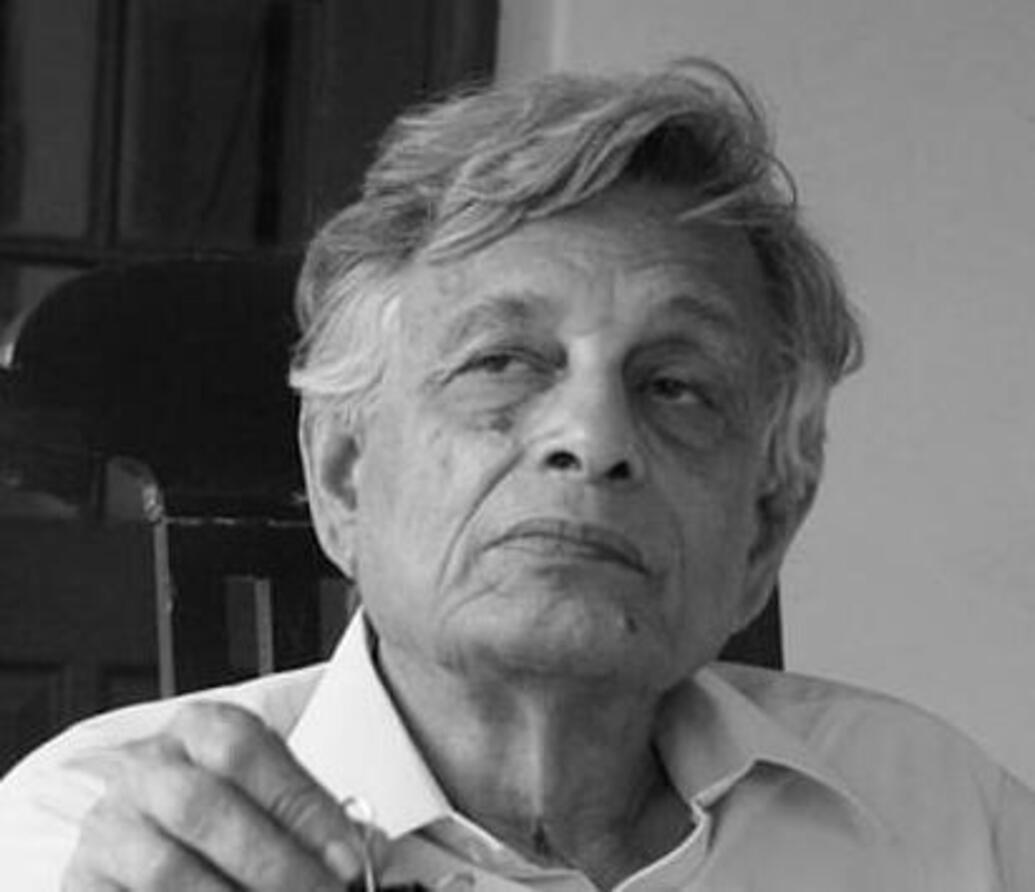
Irfan Habib
Irfan Habib, Professor Emeritus at the Aligarh Muslim University, is the author of The Agrarian System of Mughal India, 15561707 (1963; revised edition 1999), An Atlas of the Mughal Empire (1982), Essays in Indian History: Towards a Marxist Perception (1995), Medieval India: The Study of a Civilization (2007), Economic History of Medieval India, 12001500 (with collaborators) (2011) and Atlas of Ancient Indian History (with Faiz Habib) (2012). He has co-edited The Cambridge Economic History of India, Vol. I (1982), UNESCOS History of Humanity, Vols. 4 and 5, and UNESCOS History of Central Asia, Vol. 5. He is the General Editor of the Peoples History of India, and has authored several volumes in the series.
-
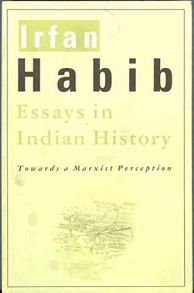 Essays in Indian History: Towards a Marxist PerceptionINR 650This collection brings together, for the first time, several seminal essays by Professor Irfan Habib interpreting the main currents in Indian history from a Marxist perspective. They cover a wide rang...
Essays in Indian History: Towards a Marxist PerceptionINR 650This collection brings together, for the first time, several seminal essays by Professor Irfan Habib interpreting the main currents in Indian history from a Marxist perspective. They cover a wide rang... -
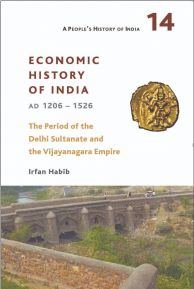 Economic History of India, AD 1206-1526INR 340
Economic History of India, AD 1206-1526INR 340This book covers the entire range of the economic history of India from the thirteenth to the early sixteenth century. Certain well-known themes like the economic consequences of the establishment ...
-
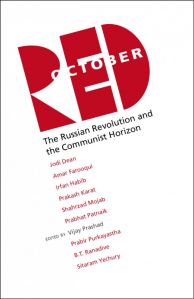 Red OctoberINR 250
Red OctoberINR 250The first socialist state in history lasted only seventy years. This is a very small period of time in the scope of world history. Its achievements have been pilloried – its demise being the ...
-
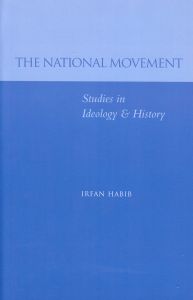 The National MovementINR 195
The National MovementINR 195This volume consists of five essays on the National Movement that arose to overthrow British rule in India. Three of these essays are devoted to the two men, Mahatma Gandhi and Jawaharlal Nehru, wh...
-
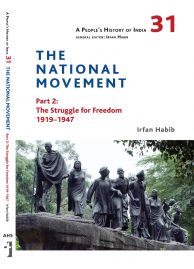 The National MovementINR 350
The National MovementINR 350This volume (People’s History of India, No. 31) takes up the story of the Indian National Movement from 1919, when the first nationalist struggle took place on an all-India scal...
-
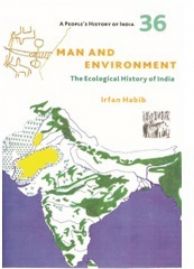 Man and EnvironmentINR 395
Man and EnvironmentINR 395Increasing interest has been shown in recent decades in matters relating to ecology, especially under the influence of the debate on climate change. The scope of ecology is, of course, much wider t...
-
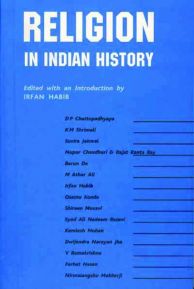 Religion in Indian HistoryINR 495Religion has been, and is, an important element in Indian society and history. It is, however, rare for the subject to be discussed with the necessary degree of detachment. This volume was, therefore,...
Religion in Indian HistoryINR 495Religion has been, and is, an important element in Indian society and history. It is, however, rare for the subject to be discussed with the necessary degree of detachment. This volume was, therefore,... -
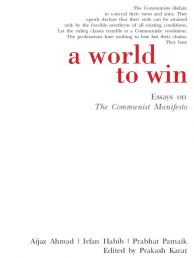 A World to WinINR 250
A World to WinINR 250It has been more influential in the making of the modern world than any other piece of political writing. Rarely has call to arms been phrased in a language of such zest, beauty and purity. One hun...
-
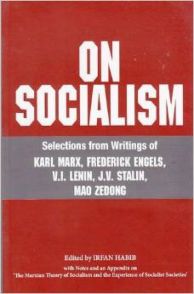 On SocialismINR 350
On SocialismINR 350While Marx and Engels wrote detailed critiques of capitalism, they could only suggest the bare outlines of what socialism as the order of society supplanting capitalism could be like. Lenin built o...
-
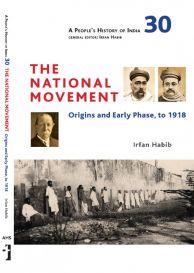 The National MovementINR 210
The National MovementINR 210This volume consists of 5 essays on the National Movement that arose to overthrow British rule in India. Three of these essays are devoted to the two men, Mahatma Gandhi and Jawaharlal Nehru, whose...
-
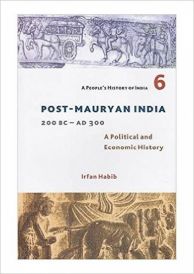 Post-Mauryan India, 200 BC - AD 300INR 320
Post-Mauryan India, 200 BC - AD 300INR 320Post-Mauryan India, 200 BC - AD 300: A Political and Economic History, as part of the People's History of India series, deals with the five hundred years that, in the political sphere, are...
-
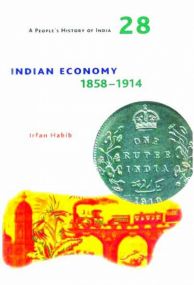 Indian Economy, 1858-1914INR 315
Indian Economy, 1858-1914INR 315The monograph surveys the developments within the Indian economy during the period of the high tide of colonial domination between the 1857 Rebellion and the First World War. Its various sub-chapte...
-
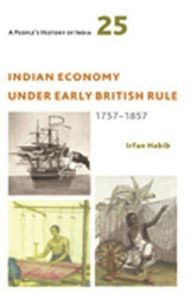 Indian Economy Under Early British Rule, 1757-1857INR 340
Indian Economy Under Early British Rule, 1757-1857INR 340This volume in the People's History of India series fills a void in the current literature in modern Indian economic history, which lacks a general account of the Indian economy in the first centur...
-
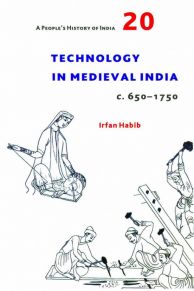 Technology in Medieval India, c. 650-1750INR 400
Technology in Medieval India, c. 650-1750INR 400This book covers an important aspect of our history, on which no general work or textbook yet exists. It aims at covering the whole range of technology, from the tools and skills of ordinary men an...
-
 Post Mauryan India, 200 BC – AD 300INR 320
Post Mauryan India, 200 BC – AD 300INR 320Post-Mauryan India, 200 BC – AD 300: A Political and Economic History, as part of the People’s History of India series, deals with the five hundred years that, in the political sphere, ...
-
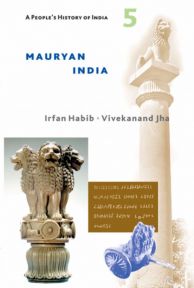 Mauryan IndiaINR 500
Mauryan IndiaINR 500Mauryan India, as part of the People's History of India series, covers the period from about 350 BC to about 185 BC, thereby encompassing the invasion of Alexander (327-325 BC) and the his...
-
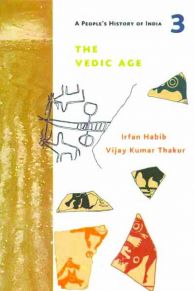 The Vedic AgeINR 340
The Vedic AgeINR 340The Vedic Age completes the first set of three monographs in the People's History of India series. It deals with the period c. 1500 to c. 700 BC, during which it sets the Rigveda and the s...
-
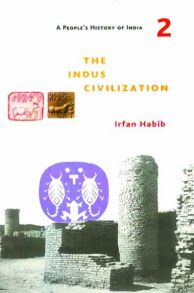 The Indus CivilizationINR 345
The Indus CivilizationINR 345The Indus Civilization by Irfan Habib forms Volume 2 of the People's History of India series. It continues the story from the point reached in the preceding volume, Prehistory, an...
-
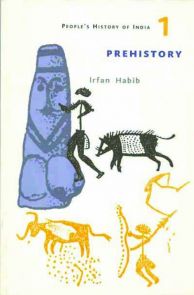 PrehistoryINR 175
PrehistoryINR 175Prehistory describes the earliest ages of human life in India, long before the existence of written records. It is part of a larger project, a People's History of India. In this monograph,...

Margaret Carson
Margaret Carson has translated Sergio Chejfec's My Two Worlds. She teaches at the City University of New York.
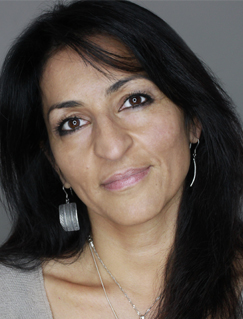
Susan Abulhawa
Susan Abulhawa is a Palestinian novelist and poet. Her most recent novel, The Blue Between Sky and Water (Bloomsbury, 2015), is an international best seller, translated into 28 languages.

Marc Bloch
Marc Bloch was a mediaeval historian, University Professor and French Army officer. Bloch was a founder of the Annales School, best known for his pioneering study French Rural History and his posth

David Forgacs
David Forgacs holds the endowed Guido and Mariuccia Zerilli-Marimò Chair in Contemporary Italian Studies at New York University. He earned both his M.A. in English and his M.Phil. in Compara

Aruna Chakravarti
Aruna Chakravarti, formerly the Principal of Janki Devi Memorial College, University of Delhi, is a well-known writer and translator. She has received several prestigious literary awards including

Meera Nanda
Meera Nanda is an independent scholar based in the United States. She has been a John Templeton Foundation Fellow in Religion and Science (2005-2007), and is currently in India as Visiting Professo


